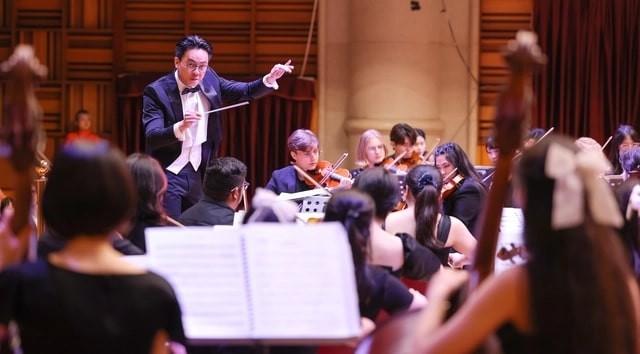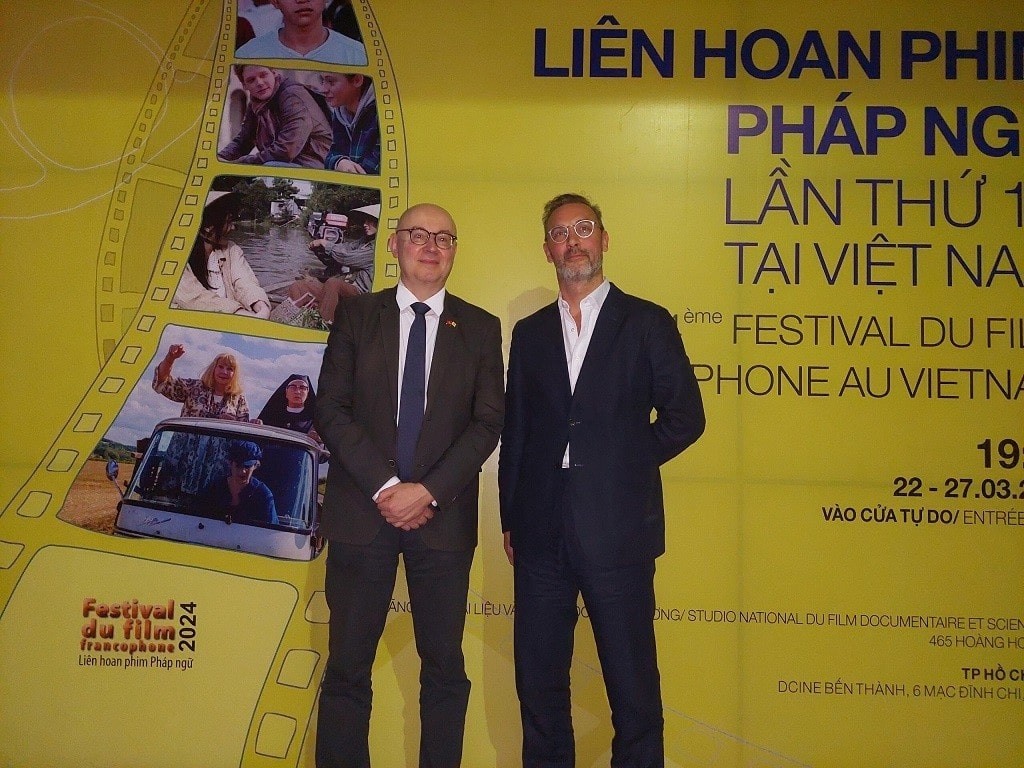Early help tied to better language skills in kids with hearing loss
Children with permanent hearing loss may develop better language skills if they get hearing aids or cochlear implants while they’re still babies, an Australian study suggests.
For the study, researchers examined data on language abilities at age 5 for children born with permanent hearing loss who received similar interventions at different points in childhood.
Kids who received hearing aids at age 2 had worse language outcomes than kids who got the devices fitted when they were just 3 months old, the study found. Children who got cochlear implants at age 2 also had worse language outcomes than kids who got these devices when they were 6 months old.
 |
A Bangladeshi child wears an hearing-aid during a demonstration against noise pollution in Dhaka, Oct 2003. (Photo: AFP/Farjana K. Godhuly)
“Access to auditory cues in speech and language paves the way for language learning,” said lead study author Teresa Ching of the National Acoustic Laboratories Australian Hearing and the HEARing Cooperative Research Center in Australia.
“The shorter the period of deprived access to sounds, which would be non-existent in the case with normal hearing, the higher likelihood for the child with hearing loss to develop language that is on par with his/her normal-hearing peers,” Ching said by email.
Universal newborn hearing screenings have become standard in Australia and much of the developed world, with the goal of catching and treating hearing loss earlier when there’s the greatest potential benefit, the researchers write in Pediatrics.
But in practice, there’s still wide variation in how soon children with permanent hearing loss may receive hearing aids to amplify sounds or cochlear implants to transmit sound signals to the brain in kids with damage in the inner ear.
For the current study, researchers examined language outcomes at age 5 for 350 children with permanent hearing loss as well as for a control group of 120 kids with normal hearing.
The kids with hearing loss were compared to children with similar types of impairment who got the same intervention - hearing aids or cochlear implants - at a different time. Children were also similar in the degree of hearing loss, birth weight, IQ, additional disabilities and mode of communication.
The impact of earlier intervention was more pronounced for children with more severe hearing impairment than for kids with milder hearing loss, the study found.
Universal newborn hearing tests, however, didn’t appear to influence language outcomes. This might be because not all kids who got tested as newborns received hearing interventions as infants, and some children who missed out on newborn tests still received hearing aids or implants as babies, the authors note.
One limitation of the study is that almost half of the eligible children invited to join the study didn’t enroll or didn’t remain in the study until they were 5 years old, the researchers point out. Some parents declined to participate, while in other cases kids turned out not to have permanent hearing loss or didn’t receive aids or implants until after their third birthday.
The low inclusion rate might explain why researchers didn’t detect an impact from universal newborn hearing tests, the authors conclude.
 |
Doctor examining toddler's ear. (Source: Internet)
Screening to promptly detect and treat hearing loss results in the best listening and speaking outcomes, said Dimity Dornan, founder and Executive Director of Hear and Say, an nonprofit advocacy group in Brisbane, Australia.
“When a child with hearing loss receives appropriate hearing aids, the pathway to the brain is unlocked, allowing sound to reach the listening part of the brain,” Dornan, who wasn’t involved in the study, said by email.
“This opens the possibility for the rudimentary brain circuitry for listening that the baby is born with to change from little rutted country lanes into six-lane freeways, and sound messages can quickly reach the brain and be interpreted,” Dornan added.
“If a child does not receive hearing aids until later, the listening brain is not optimally developed and the listening, understanding and acting/speaking cycle is laborious and slow.”
SOURCE: http://bit.ly/2u5ixi9 Pediatrics, online August 3rd, 2017./.
VNF/Reuters
Most read
Recommended
 Handbook
Handbook
“Peach Blossom, Pho And Piano” To Be Shown During Vietnamese Film Week In Poland
 Handbook
Handbook
Film of Young Director Heads to 2024 Cannes Film Festival
 Handbook
Handbook
Vietnamese Dishes Honored Around The World
 Handbook
Handbook
Conductor Tran Nhat Minh Brings Vietnamese Folk Songs To The World
Popular article
 Handbook
Handbook
Vietnamese Student Wins Prizes At The Kyushu Music Concour International Music Competition
 Handbook
Handbook
Amanda Nguyen: The First Vietnamese Woman To Fly Into Space
 Handbook
Handbook
Three Vietnamese Ports Among Top 50 Largest Container Seaports Worldwide
 Handbook
Handbook








